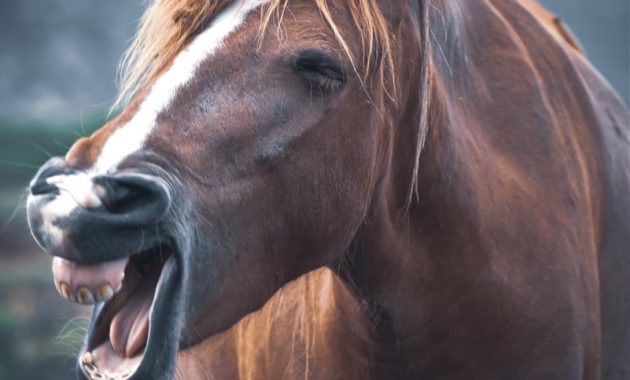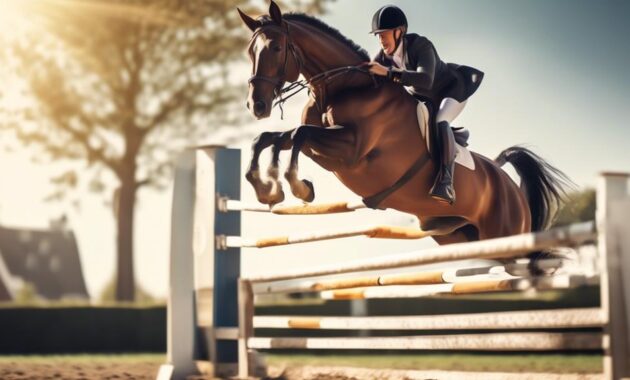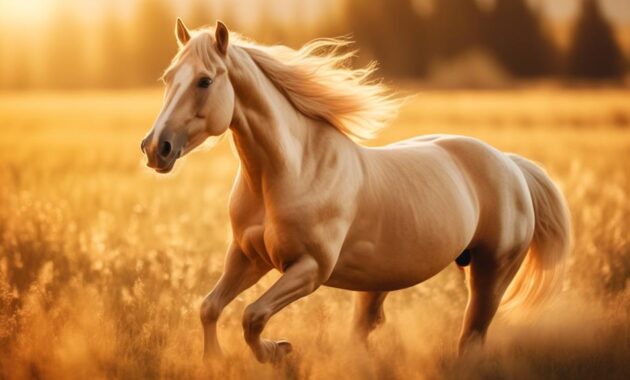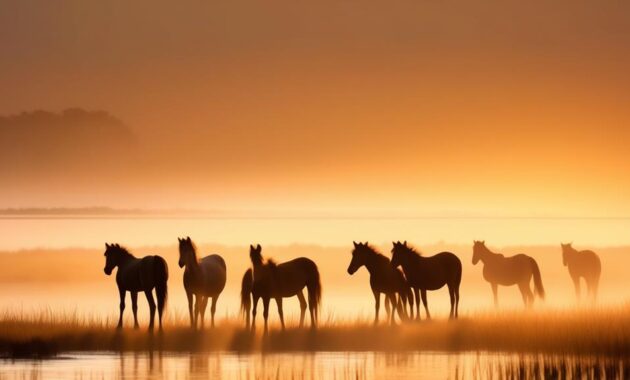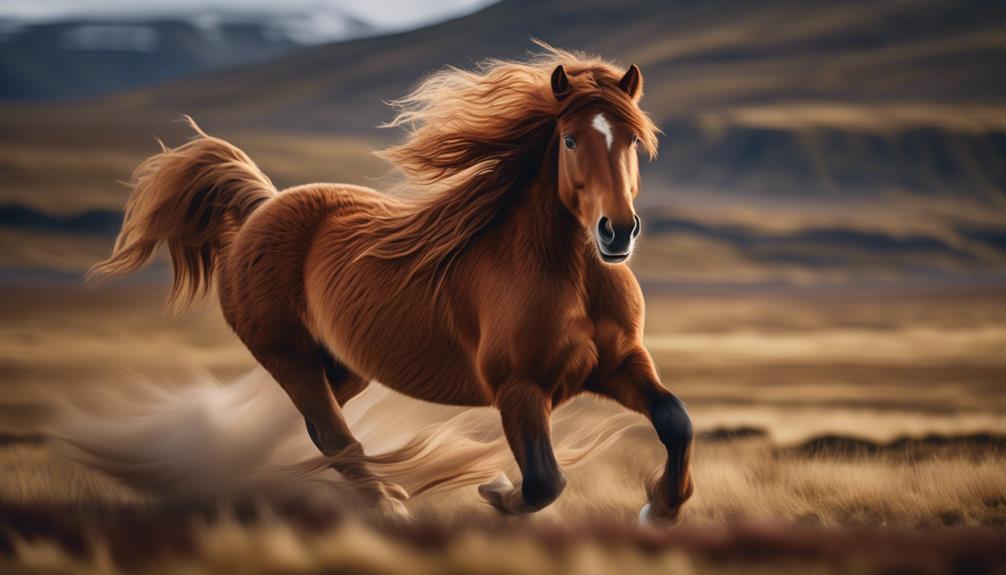
Juxtaposing its majestic appearance with its versatile nature, the Icelandic Horse has long been a source of fascination for equestrians and admirers alike.
With its sturdy build and compact physique, this breed is remarkably well-suited for riders of all skill levels, including novices and young riders.
But there’s more to this horse than meets the eye. Its lively temperament, adaptability, and patient disposition make it an exceptional companion, ready to forge a bond with those who seek a fulfilling partnership.
Key Takeaways
- The Icelandic horse is a versatile breed that is suitable for riders of all experience levels, including beginners and children.
- This breed has a long and storied history, brought to Iceland by Vikings over 11 centuries ago and used for various tasks such as traveling, plowing fields, and carrying loads.
- The Icelandic horse is known for its friendly temperament and affinity for humans, making it a great companion and family horse.
- With its stocky, muscular build and strong legs, the Icelandic horse is well-equipped to carry both adults and children, and its adaptability and patience make it an uncomplicated and easygoing breed to work with.
Origins and Historical Significance
The Icelandic horse, brought to Iceland by Vikings over 11 centuries ago, holds immense historical significance as a breed that has evolved in isolation to survive harsh climates and assist Norse people in various tasks. These horses were essential to the survival of the Norse people, as they were used for transportation, plowing fields, and carrying heavy loads. Their ability to adapt to the harsh Icelandic climate and their strong, compact physique made them well-suited for these tasks.
Despite their small size, they were known for their strength and endurance. Over time, the Icelandic horse has become a symbol of Icelandic culture and heritage. Today, they continue to be valued for their versatility and gentle temperament, making them suitable for riders of all experience levels.
Adaptability to Harsh Environments
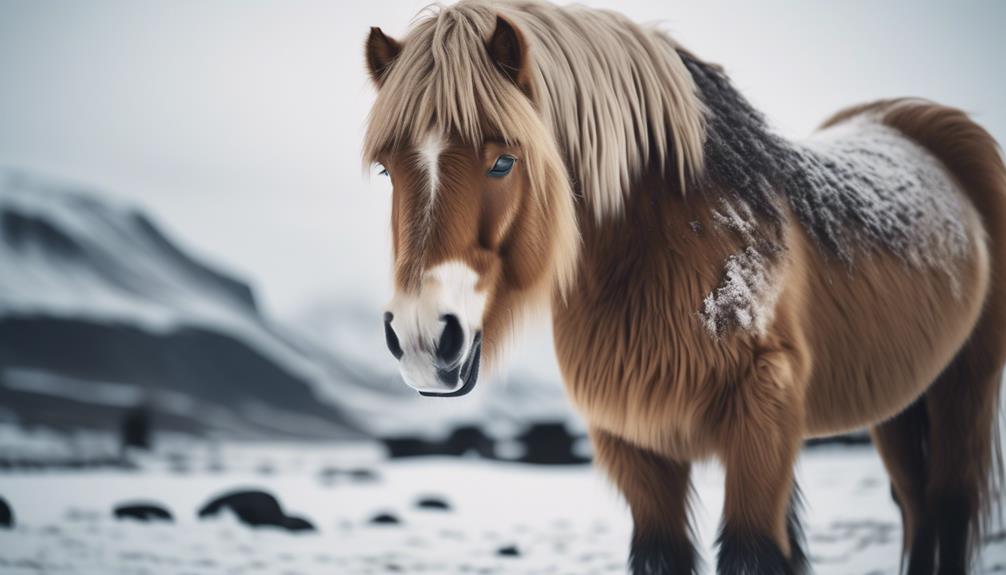
With their evolved ability to adapt to harsh environments, Icelandic horses have become renowned for their resilience and endurance. Living in Iceland’s extreme weather conditions, including cold temperatures, strong winds, and unpredictable terrain, has shaped them into a hardy and tough breed.
Their thick double coat, developed to withstand freezing temperatures, provides insulation against the elements. The Icelandic horse’s sturdy build and strong legs allow them to navigate difficult terrain, including rocky mountainsides and muddy bogs. Their sure-footedness and agility make them reliable and safe mount for riders, even in treacherous conditions.
This adaptability to harsh environments has made the Icelandic horse a valuable companion for farmers, travelers, and riders in Iceland and around the world.
Versatility in Various Activities
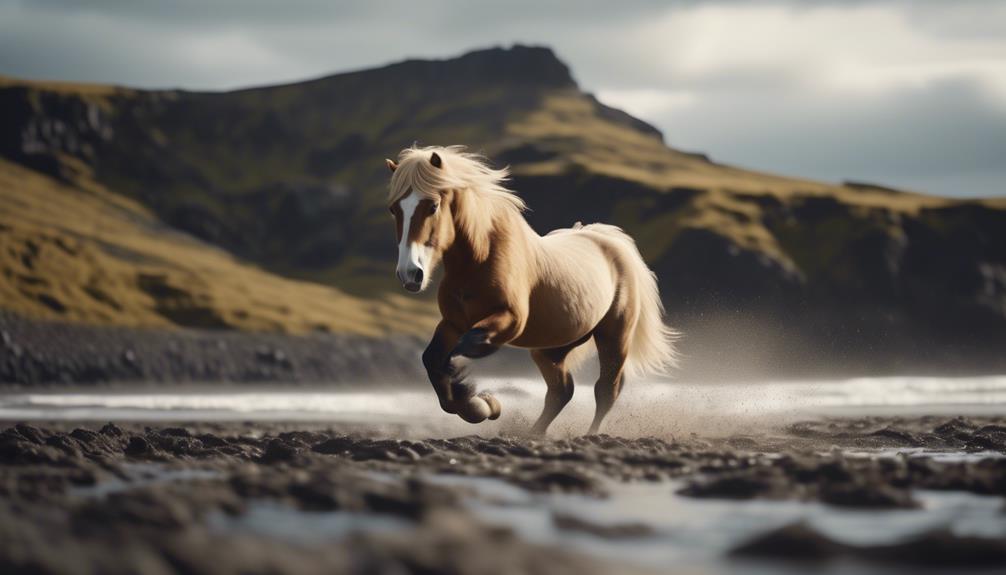
Icelandic horses display remarkable versatility in various activities, excelling in both recreational riding and competitive sports. Their unique combination of strength, endurance, and agility allows them to participate in a wide range of activities, making them a popular choice for horse enthusiasts. Here are five areas where Icelandic horses showcase their versatility:
- Trail Riding: Icelandic horses are well-suited for exploring diverse terrains, from rugged mountains to serene forests. Their sure-footedness and ability to navigate challenging trails make them a reliable companion for riders seeking adventure.
- Dressage: Known for their smooth gaits, Icelandic horses excel in dressage competitions. Their natural ability to perform the tölt, a four-beat gait, showcases their elegance and grace, earning them recognition in the dressage arena.
- Show Jumping: Despite their compact size, Icelandic horses possess impressive jumping abilities. They can tackle various jump heights with precision and power, making them formidable competitors in show jumping events.
- Endurance Riding: The Icelandic horse’s stamina and endurance make them ideal candidates for long-distance endurance riding. They can cover significant distances without tiring, proving their ability to excel in this demanding sport.
- Driving: Icelandic horses have a long history of being used for driving tasks, such as pulling carriages and carts. Their strength and willingness to work make them reliable partners for both recreational and competitive driving activities.
With their versatility in these activities, Icelandic horses continue to captivate riders and enthusiasts around the world, showcasing their adaptability and prowess in various equestrian pursuits.
Ideal Horse for Riders of All Levels
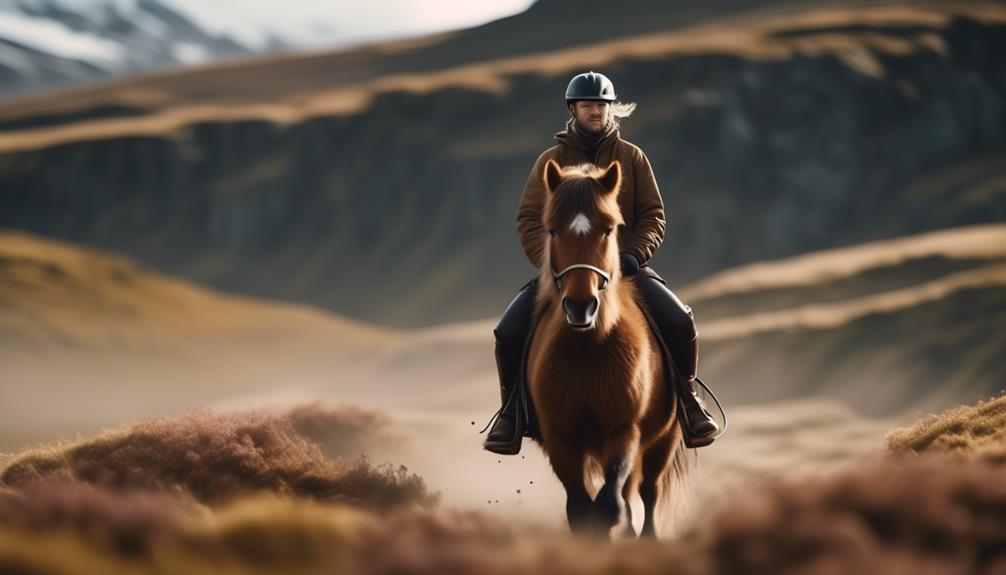
Perfect for riders of all levels, the Icelandic horse offers a versatile and enjoyable riding experience. Whether you’re a beginner or an experienced rider, this breed is well-suited to meet your needs.
With their adaptable and patient temperament, Icelandic horses are uncomplicated to handle and ride. They’re friendly and have a strong affinity for humans, making them a great companion for riders of any age. Additionally, this breed has no fight or flight instinct, making them safe and reliable.
The Icelandic horse’s stocky and compact physique, along with their strong legs, allows them to carry both adults and children with ease. Their dense bones, agility, and sure-footedness make for a secure and sturdy ride.
With their versatility and gentle nature, the Icelandic horse truly is an ideal choice for riders of all levels.
Unique Personality Traits and Temperament
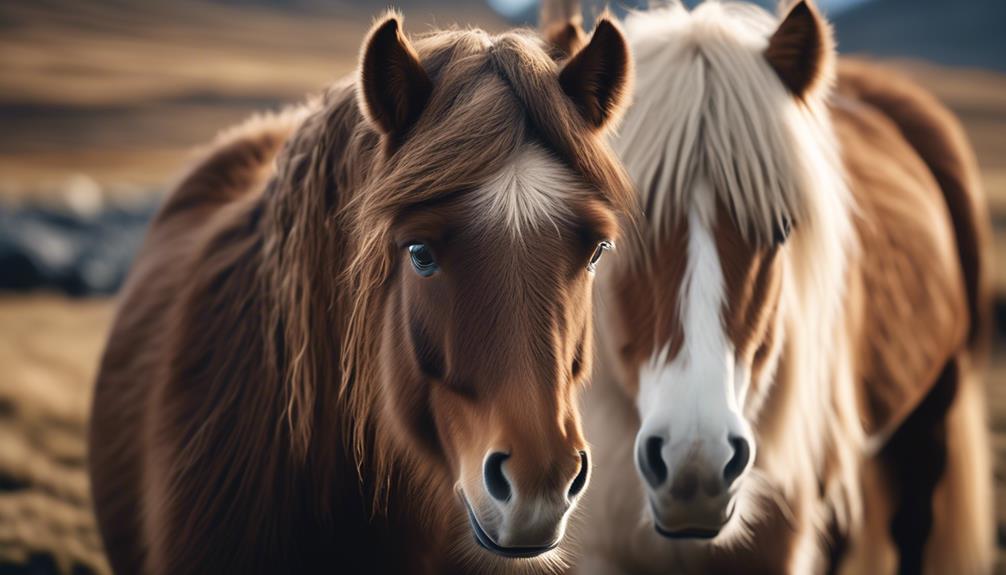
One notable aspect of the Icelandic horse is its unique personality traits and temperament. This breed possesses a range of characteristics that make it stand out from other horses.
Here are five key traits that contribute to its distinctive personality:
- Lively: Icelandic horses are known for their lively and spirited nature. They’ve an energy and enthusiasm that adds excitement to any riding experience.
- Independent: These horses are independent thinkers and display a strong sense of self. They aren’t easily swayed by external influences and prefer to make their own decisions.
- Adaptable: Icelandic horses are highly adaptable to different environments and situations. They can easily adjust to varying weather conditions and terrain, making them versatile companions for riders.
- Patient: With a patient temperament, Icelandic horses are tolerant and calm. They’re willing to wait and take their time, making them suitable for riders of all levels.
- Friendly: Icelandic horses have a friendly disposition and enjoy the company of people. They form strong bonds with their riders and are often described as affectionate and sociable animals.
These unique personality traits and temperament make the Icelandic horse a beloved and sought-after breed among riders and horse enthusiasts.
Breed Characteristics and Physical Traits
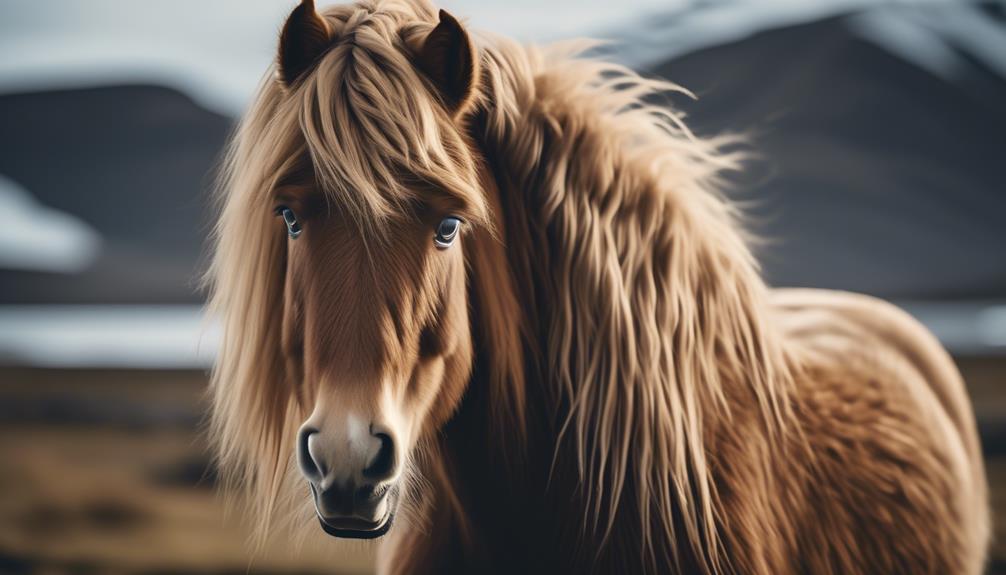
With their unique personality traits and temperament established, the focus now shifts to the breed characteristics and physical traits of these Icelandic horses.
Known for their versatility and adaptability, Icelandic horses are suitable for riders of all experience levels. They’re friendly and have an affinity for humans, making them easy to handle and train. This breed exhibits almost all possible colors, adding to their beauty and individuality.
Icelandic horses have a stocky, muscular, and compact body, with strong legs capable of carrying adults and children. They’ve dense bones, making them agile, sure-footed, and sturdy. With their large eyes and well-defined head, Icelandic horses have a distinct and charming appearance. It takes them 6-7 years to fully grow and mature.
In terms of grooming, Icelandic horses have a wide range of colors, with the most common being chestnut and rare colors including silver bay and silver dapple. They’ve thick, long tails and manes, and develop a double coat in winter. Regular grooming, including equine tools and shampoo, is necessary, as well as checking their hooves for injuries and infections. Some owners also consider clipping their coat in winter for easier maintenance.
Wide Range of Colors and Coat Variations
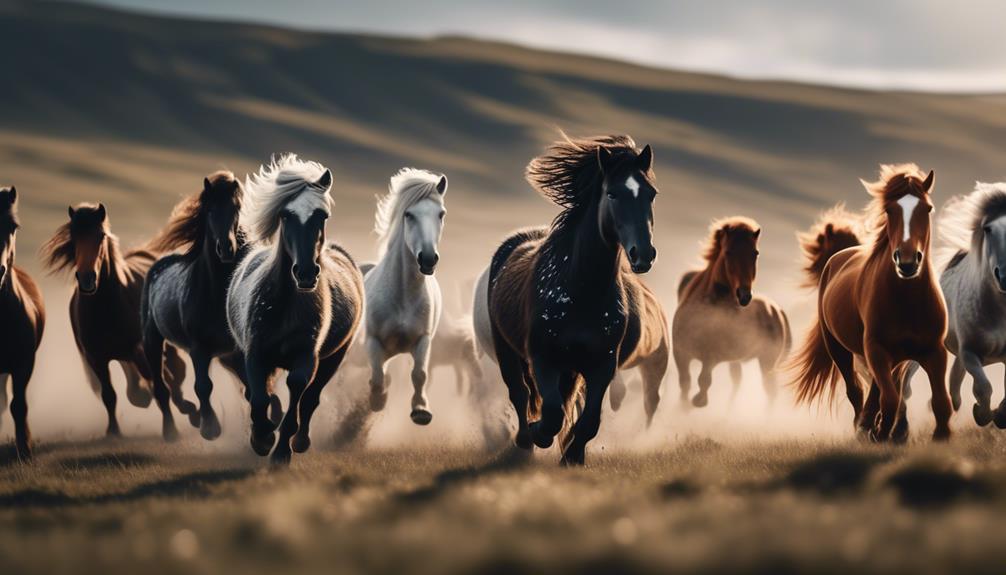
Icelandic horses display a diverse array of colors and coat variations, adding to their distinctiveness and allure. Here are five fascinating aspects of their wide range of colors and coat variations:
- Chestnut: The most common color among Icelandic horses, ranging from light to dark shades.
- Gray: These horses are born with dark coats that gradually turn gray as they age.
- Bay: Bay horses have a reddish-brown body with black points on their legs, mane, and tail.
- Dun: Dun horses have a lighter body color with a darker dorsal stripe running down their back.
- Pinto: These horses have a combination of white and any other color, creating eye-catching patterns.
The Icelandic horse’s ability to exhibit almost all possible colors, from classic shades to unique variations, makes them truly captivating and adds to their appeal.
Grooming and Care Tips for Icelandic Horses
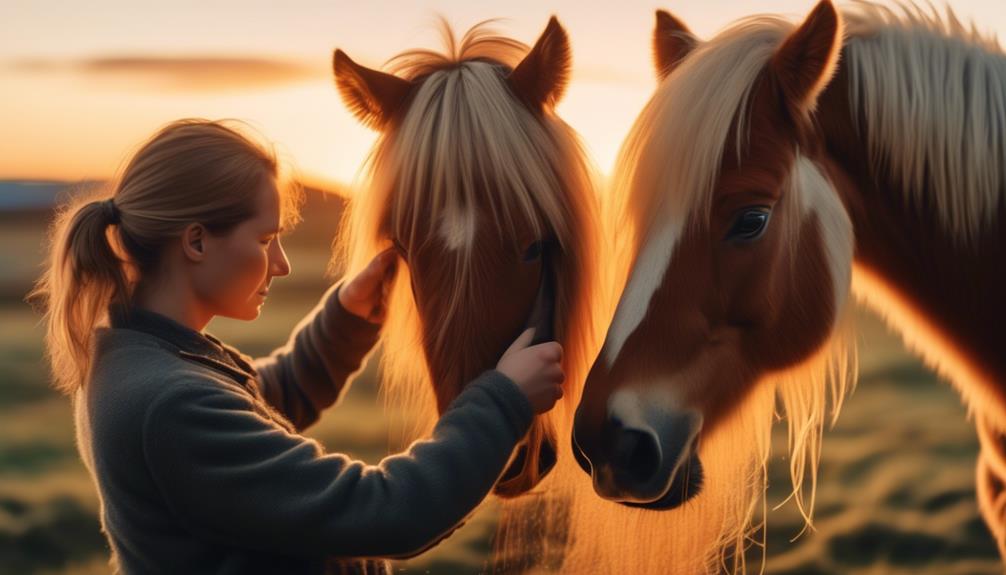
To ensure the well-being and maintenance of Icelandic horses, it’s important to follow proper grooming and care tips.
Icelandic horses have a thick, long tail and mane, which require regular grooming using equine tools and shampoo.
It’s also essential to regularly check their hooves for injuries and infections.
During winter, considering clipping their coat can help manage their double coat.
Proper nutrition is crucial to their health, so providing a balanced diet and access to clean water is necessary.
Regular exercise is also important to keep them fit and mentally stimulated.
Additionally, regular veterinary check-ups and vaccinations are necessary to prevent any potential health issues.
Growth and Development Phases
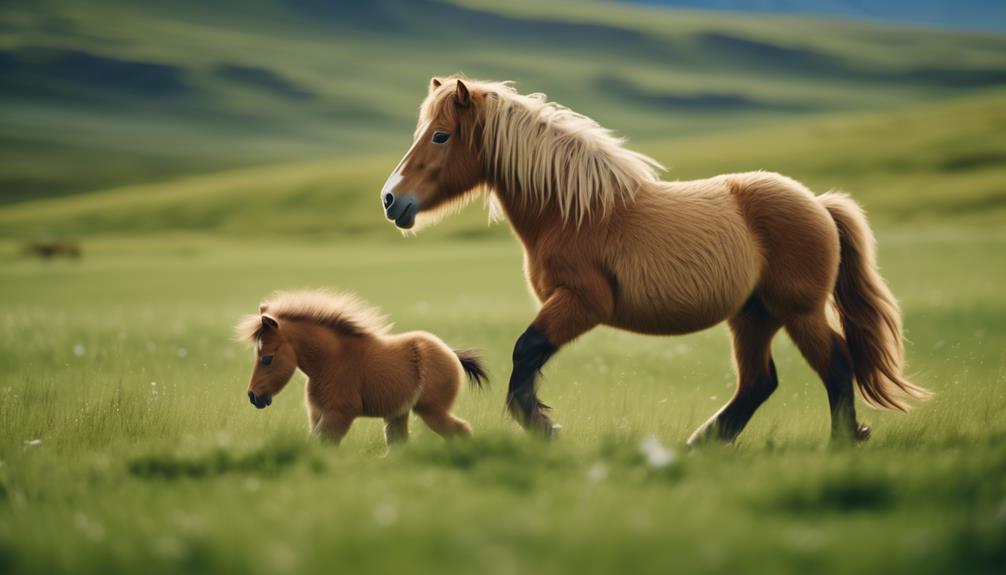
During their growth and development phases, Icelandic horses undergo significant physical and mental transformations. These phases are crucial for the horse’s overall development and determine their future capabilities. Here are five key aspects of the growth and development phases of Icelandic horses:
- Rapid growth: Icelandic horses experience rapid growth during their first few years. They go through various growth spurts, where their bones and muscles develop quickly.
- Mental maturity: Alongside physical growth, Icelandic horses also undergo mental development. They become more curious, confident, and eager to learn new things.
- Developing gaits: As they grow, Icelandic horses refine their gaits, particularly the unique tölt and flying pace. These smooth and comfortable gaits become more balanced and fluid over time.
- Muscular development: The growth and development phases are crucial for the muscular development of Icelandic horses. Their muscles become stronger and more defined, allowing them to carry riders and perform various tasks.
- Stamina and endurance: As Icelandic horses mature, their stamina and endurance levels increase. They develop the ability to sustain physical activity for longer periods, making them suitable for long rides and outdoor adventures.
Icelandic Horse: A Beloved Family Companion
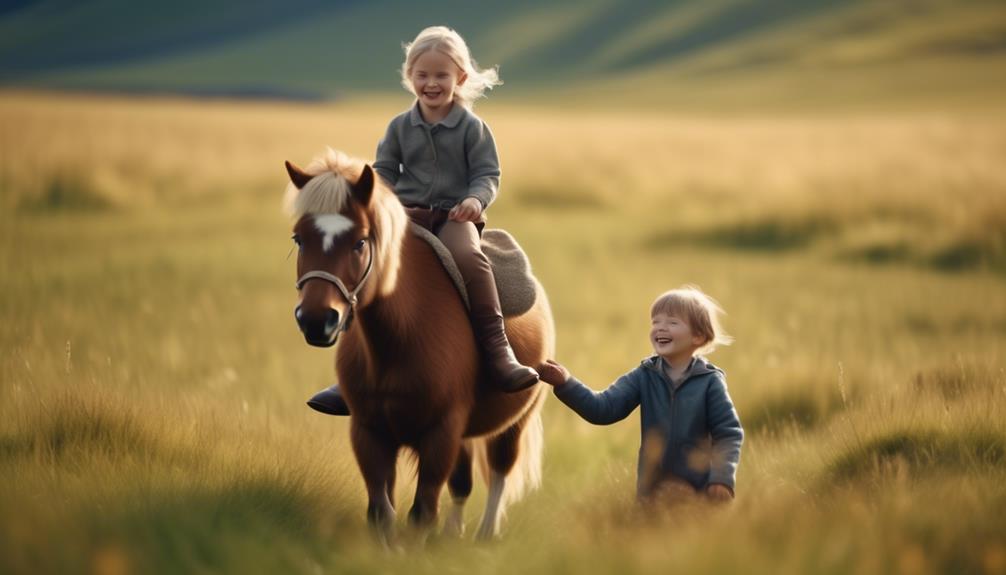
The Icelandic horse has become a cherished member of many families, bringing joy and companionship to all who’ve the pleasure of owning one.
Known for their friendly and patient temperament, these horses are incredibly adaptable and well-suited for riders of all experience levels, including beginners and children.
With their compact and stocky physique, Icelandic horses are strong enough to carry both adults and children. They’re also agile, sure-footed, and sturdy, making them ideal for various activities such as trail riding, dressage, and even jumping.
Additionally, the Icelandic horse has a special affinity for humans and enjoys their company. This makes them not only reliable and trustworthy companions but also great partners for family adventures and bonding experiences.
Frequently Asked Questions
Are Icelandic Horses Suitable for Competitive Horse Racing?
Yes, Icelandic horses are suitable for competitive horse racing. They are versatile, adaptable, and have a strong, compact physique. Their lively temperament and agility make them well-suited for various equestrian sports, including racing.
What Is the Average Cost of Purchasing an Icelandic Horse?
The average cost of purchasing an Icelandic horse varies depending on factors such as age, training, and bloodline. However, prospective buyers can expect to spend anywhere from $2,000 to $10,000 or more.
Can Icelandic Horses Be Used for Therapeutic Riding Programs?
Yes, Icelandic horses can be used for therapeutic riding programs. They are suitable for riders of all experience levels, have a friendly temperament, and are patient and adaptable. Their compact physique and sturdy build make them ideal for therapeutic purposes.
How Often Should Icelandic Horses Be Exercised?
Icelandic horses should be exercised regularly to maintain their physical and mental well-being. The frequency of exercise will depend on the horse’s age, fitness level, and intended use, but a general guideline is to provide daily exercise and turnout whenever possible.
Are Icelandic Horses Prone to Any Specific Health Issues?
Icelandic horses are generally healthy and not prone to specific health issues. However, like all horses, they can be affected by common ailments such as lameness, colic, and respiratory problems. Regular veterinary care and proper management are essential for their overall well-being.
What Makes the Icelandic Horse Majestic and Versatile Compared to the Colorado Ranger Horse?
The Icelandic Horse is renowned for its strength and endurance, making it a versatile breed for various activities. In contrast, the stunning Colorado Ranger Horse is prized for its agility and stunning coloration. Both breeds possess unique traits that make them majestic in their own right.
Conclusion
In conclusion, the Icelandic Horse is a truly remarkable breed that has captured the hearts of horse enthusiasts worldwide.
With its versatile nature, sturdy build, and unique personality traits, it’s no wonder that this breed is loved by riders of all levels.
From its rich history to its adaptability in harsh environments, the Icelandic Horse continues to be a beloved family companion and a symbol of beauty and strength.

